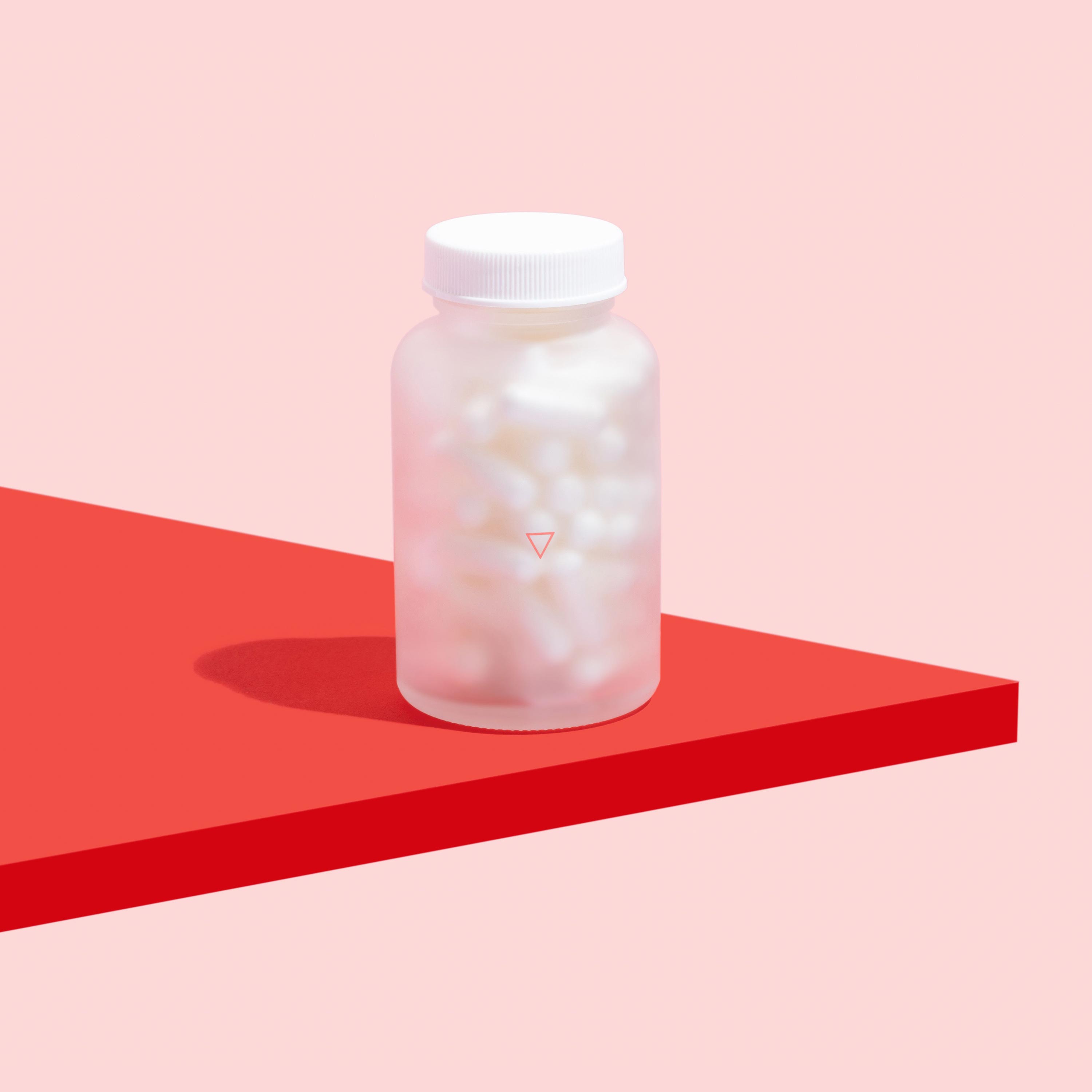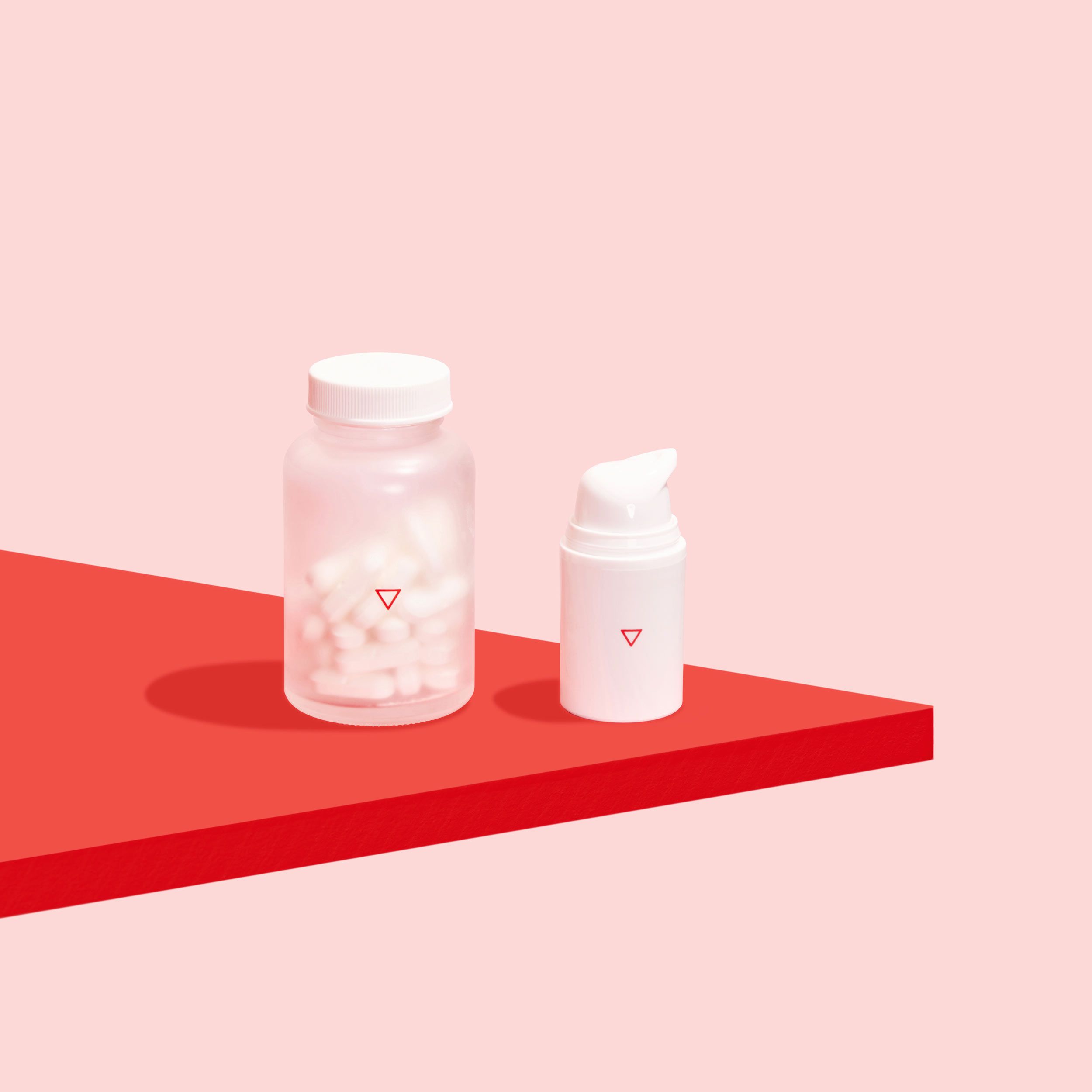
Can You Get Herpes on Your Buttocks?
Published on April 14, 2020
Updated on April 21, 2025
Written by Kathleen Morrison
Medically Reviewed by Andrea Sleeth WHNP-BC, MSCP
Surprise! Herpes doesn’t just show up on your lips or genitals—it can also make an appearance on your butt. And while it’s not exactly prime small-talk material, it’s way more common than people think.
Those fluid-filled sores? They’re usually linked to the herpes simplex virus (HSV), the same one behind cold sores and a genital herpes infection. So if you’ve noticed some unwelcome guests back there, that could be what you’re dealing with.
A herpes outbreak on your butt can be super uncomfortable—sitting for long periods? Not fun.
But the good news is that there are easy ways to manage symptoms and get back to feeling like yourself.
HSV Explained
Herpes simplex virus comes in two types: HSV-1 (the one usually behind cold sores) and HSV-2 (more often linked to genital herpes).
But here’s the thing—they can both show up pretty much anywhere, including your backside. The virus usually spreads through skin-to-skin contact, slipping in through tiny breaks in the skin before settling into nearby nerve cells. And once it’s there, it’s in it for the long haul, hanging out quietly until something—stress, fatigue, even weather changes—triggers a flare-up.
And here’s a wild fact: A lot of people have HSV without even knowing it, because not everyone gets noticeable symptoms. That’s why learning about how the virus behaves can be a game-changer. If you know what tends to set off an outbreak for you, you can tweak your routine—like opting for looser clothes to avoid friction or making stress relief a priority.
Herpes isn’t something you have to just “deal with”—it’s something you can manage confidently on your own terms. Even when it's on your butt.
Herpes Symptoms
Herpes outbreaks usually follow a pattern, often starting with subtle sensations before visible symptoms appear. Paying attention to these early signs can help with self-care and comfort during an outbreak.
Common mild symptoms:
- Early warning signs: Tingling, itching, or a slight burning sensation in the affected area. Small bumps or blisters: These may be spaced out or clustered and can contain clear, yellowish, or cloudy fluid.
- Sensitivity and discomfort: Skin may feel extra tender or irritated, especially in high-friction areas like your butt.
- Healing phase: If blisters break, they turn into open sores before scabbing over and fading.
Some people also experience:
- Swollen lymph nodes
- Mild fever or body aches (more common in a first outbreak)
- A general feeling of being run-down
Once you’ve been through a few recurrent outbreaks, you’ll probably get a sense of how your body handles them. Noticing the first little itch? That’s your cue to lean into self-care and prescription treatment if you think you’ll need it.
What Causes of Herpes on your Butt?
Herpes on buttocks is a common viral infection caused by the same HSV that causes genital herpes—it just takes a different path. Once herpes simplex virus type 2 enters the body, it settles into nerve cells near the lower back, and future outbreaks can show up on the skin connected to those nerves (hello, backside).
A good rule of thumb: you can experience an outbreak on any of the skin covered by briefs or boxers, even if you didn’t contract HSV through those locations.
How the Virus Spreads
- Skin-to-skin contact: The most common way HSV travels, especially during intimate activities like penetrative or oral sex (this means oral herpes, too).
- Viral shedding: The virus can spread even when no visible sores are present.
- Shared personal items: Things like razors could spread the virus if you have open lesions, but direct contact is the main culprit.
Many people don’t realize they have HSV until an outbreak happens, sometimes years after exposure. It’s a sneaky virus, but knowing how it works makes it easier to manage.
Common Triggers for Outbreaks
Outbreaks can pop up when the body is under stress—literally or figuratively. Some common triggers include:
- Stress and fatigue: Big deadlines? Sleepless nights? Your immune system notices.
- Illness and weakened immunity: When your body is fighting something else, HSV can take advantage.
- Hormonal shifts: Some people notice flare-ups tied to their menstrual cycle.
- Friction and irritation: Tight clothing or lots of movement can aggravate sensitive skin.
- Extreme weather: Harsh sun or cold can be triggering for some.
Once you get a feel for your personal triggers, small changes (like prioritizing rest or swapping out tight jeans for breathable fabrics) can help keep things more comfortable.
Can I Get it Diagnosed?
Getting an HSV diagnosis is usually pretty straightforward. A healthcare provider will check out the skin, ask about past symptoms, and—if needed—run a quick test to confirm what’s going on. The earlier you get answers, the sooner you can figure out a game plan that works for you.
What to expect during a diagnosis
Your provider may ask things like:
- Have you had blisters or sores in this area before?
- When did symptoms start?
- Have you noticed any triggers, like stress or friction?
Sometimes, a physical exam is enough to make a diagnosis, but if there’s any uncertainty, a lab test can confirm HSV. That usually involves a simple swab from an active sore or a blood test to check for HSV antibodies.
- Swab test: If there’s an active sore, a provider can take a quick swab and send it to the lab.
- Blood test: This checks for HSV antibodies and can be useful if there are no active genital herpes symptoms but you still have concerns.
A diagnosis isn’t just about getting a name for what’s happening—it’s about finding ways to make life easier. Knowing your triggers, exploring treatment options, and having a plan in place can help you feel more confident in handling future outbreaks.
Treating your Outbreak
Dealing with herpes on your butt? Totally normal. And the good news? There are solid options to help make outbreaks less of a hassle. Whether you’re looking for fast relief, long-term management, or just want to feel more in control, there’s a plan that can work for you.
Treatment Options
If outbreaks are frequent or uncomfortable, prescription antiviral meds—like acyclovir, valacyclovir, or famciclovir—can help keep symptoms in check. These meds:
- Help sores heal faster
- Help make flare-ups less intense
- Can be taken daily or only when needed
Some people find that taking medication daily helps keep things calm, while others prefer to take it only when they feel an outbreak coming on. The choice is yours! If you ever experience side effects (like mild headaches or an upset stomach), a quick chat with your provider can help tweak your dose to something that works better for you.
Wisp treatment options are available only after consultation with a licensed medical professional. You should consult with your healthcare provider before starting a new supplement or treatment regimen. Individual results may vary.
Keeping outbreaks in check
While you can’t kick the herpes virus out completely, you can help create an environment where it stays quiet. Some things that might help:
- Less stress, more sleep. Your body loves a good recharge, and so does your immune system.
- A balanced routine. Nourishing foods, hydration, and regular movement all play a role in keeping you feeling good.
- Early intervention. At the first sign of tingling, some people take their prescription antiviral meds to help keep a full-blown outbreak from developing.
Navigating sex and intimacy
If you’re sexually active, talking about HSV with partners can feel intimidating at first, but it’s also empowering. Open conversations help everyone make choices that feel good, whether that means using protection, adjusting sexual intercourse during an outbreak, or just being informed. Plus, knowledge takes a lot of the fear out of the equation.
When to check in with a pro
Some outbreaks do their thing and clear up on their own, but sometimes your body sends signals that it’s time for a little extra support. If pain is making everyday stuff (like sitting, walking, or even just existing) feel like a struggle, a quick chat with a provider can help you find some relief.
Other signs to watch for?
- Sores that look different—think unusual colors, swelling, or pus. That could mean a bacterial infection is in the mix.
- A fever or swollen lymph nodes might signal that your immune system is working overtime.
- Open sores that just won’t quit—especially in areas that rub against clothing or chairs all day.
Ignoring these little red flags can make healing drag on way longer than it needs to. And let’s be real—who has time for that?
Why getting checked out can help
Talking to a provider isn’t just about getting meds (though they can prescribe things like antivirals, anti-inflammatories, or antibiotics if needed). It’s also about getting real answers, reassurance, and a solid game plan. No more Googling symptoms at 2 AM—just clear, expert-backed guidance to help you feel better, faster.
Plus, knowing what’s normal for you can make a huge difference. If outbreaks keep happening, a provider can help you spot patterns and fine-tune your approach, whether that means adjusting meds, switching up self-care routines, or just having a go-to plan for those “ugh, not again” moments.
Own Your Sexual Health
Herpes on the butt? Yeah, it’s not exactly dinner-table talk—but honestly, it should be. The more you know about an HSV infection, the easier it is to handle, and the less power it has to stress you out.
At the end of the day, buttocks herpes (or any other kind) doesn’t define you—it’s just one part of your body’s story. Learning what works for you, taking care of yourself, and knowing when to reach out for support can make managing HSV feel way less overwhelming. Everyone’s journey looks different, but with the right tools and a solid support system, you’ve got this.
Need expert-backed prescription treatment without the hassle? Wisp makes it easy to get discreet, affordable herpes care—no waiting rooms, no stress. Chat with a provider and get same-day prescriptions sent straight to your local pharmacy or delivered to your door.
Frequently Asked Questions (FAQ):
How did I get herpes on my buttocks?
HSV spreads through direct skin-to-skin or sexual contact, so if you've ever had an intimate moment where bodies touched (even without obvious sores), the virus could’ve been passed along. It's sneaky like that!
How to get rid of herpes sores fast?
While there’s no permanent cure, prescription antiviral meds (like acyclovir) can help outbreaks heal quicker. Keeping the area clean, using soothing creams, and letting it breathe can also help you feel more comfortable while your body does its thing.
What triggers herpes outbreaks?
Stress, a tired immune system, tight clothing, friction—basically, anything that puts extra strain on your body. Some people also notice flare-ups around hormonal shifts. The more you pay attention to your personal triggers, the easier it gets to manage.
Is having HSV-2 a big deal?
Not at all! It’s super common, and while outbreaks can be annoying, they’re totally manageable. Whether through medication, lifestyle tweaks, or just having a good support system, most people find a rhythm that works for them. Talking to a provider can help you figure out the best plan for you—because you deserve to feel good, inside and out.
This blog post is for informational and educational purposes only and should not be taken as professional advice. Always consult with a qualified professional before making any decisions based on the information provided here.

Valacyclovir & Acyclovir For HSV-2
Prescription antiviral pills used to prevent & treat outbreaks
Starting at $10.00/ month
Get Started
The Duo | HSV-2
Bundle Valacyclovir & Acyclovir For HSV-1 & HSV-2 and Acyclovir 10% Topical Cream to treat & prevent outbreaks.
Starting at $45.00
Get Started
